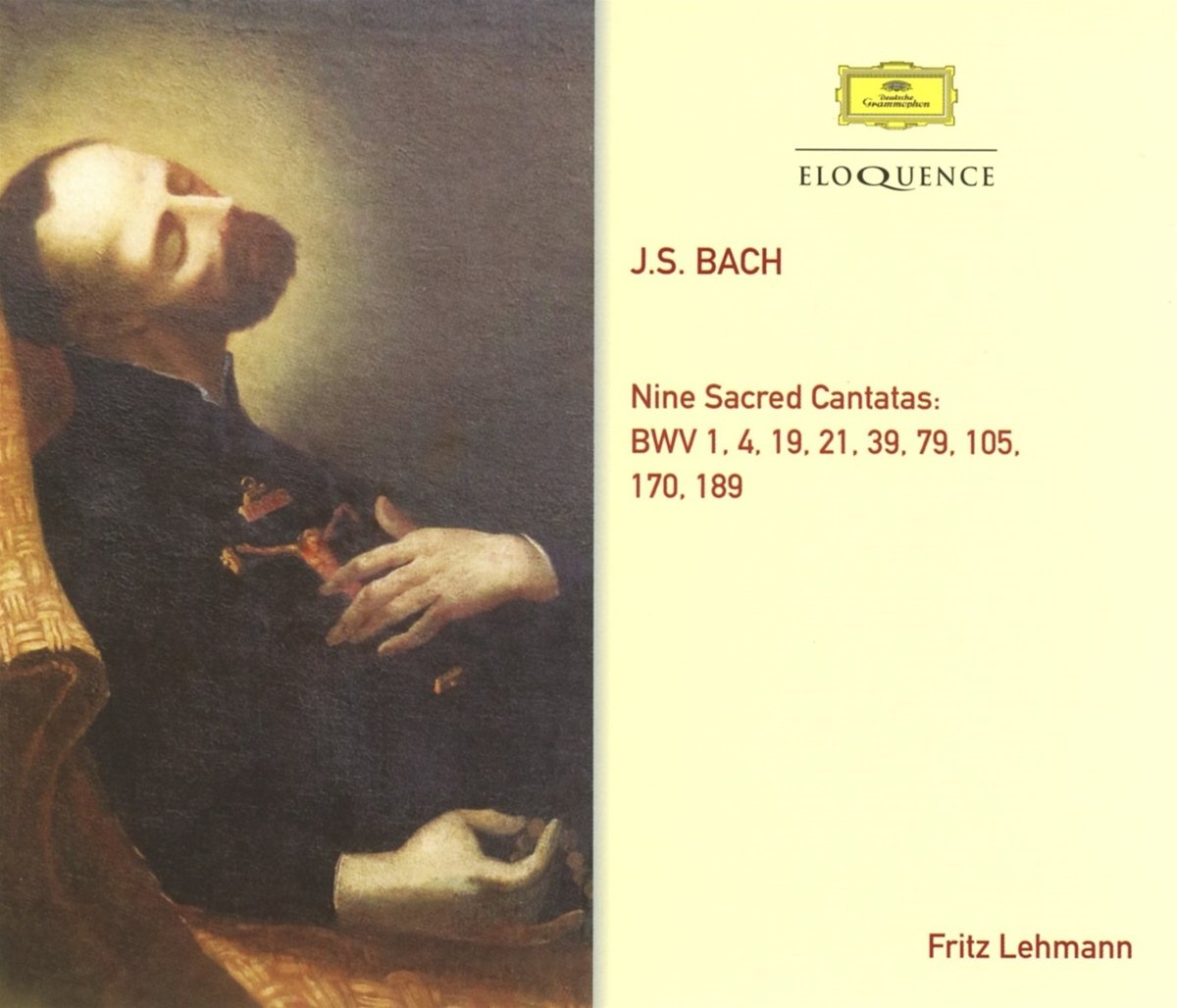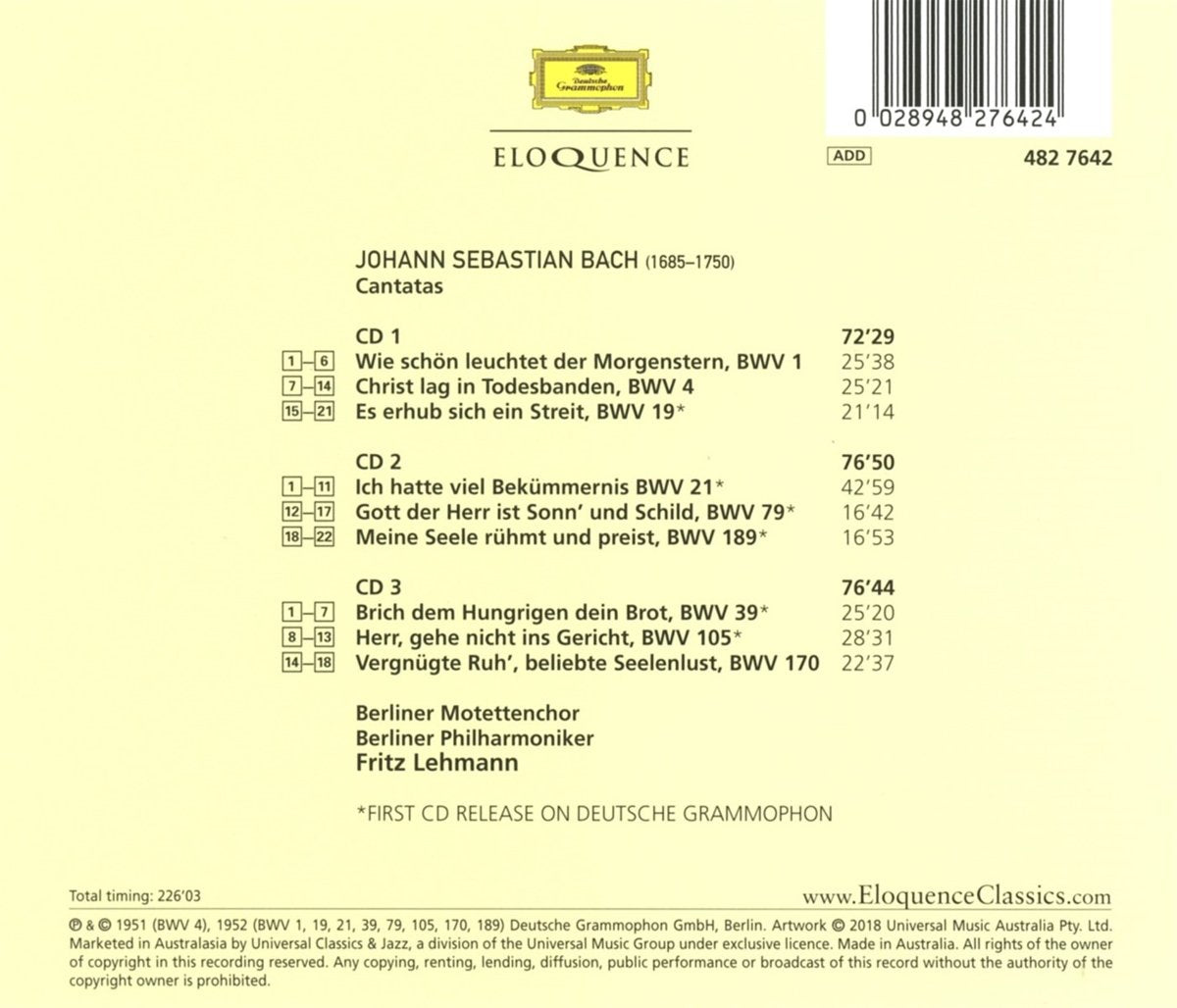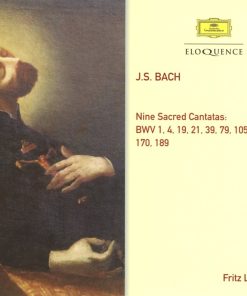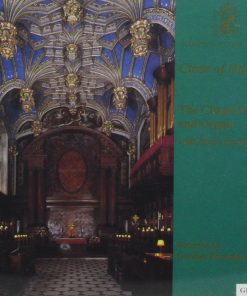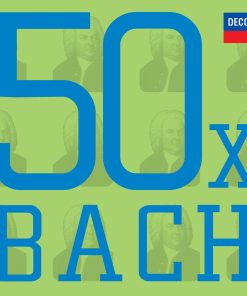Bach: Nine Sacred Cantatas – Fritz Lehman, Berlin Philharmonic (3 CDs) Deutsche Grammophon
$ 22,99 $ 13,79

The complete cantata recordings of a Bach conductor who defined performance standards of these works in his day, newly remastered and compiled together for the first time on CD. In the generation of Bach interpreters before Karl Richter who brought his cantatas to an international audience, the name of Fritz Lehmann stands out: and indeed might still have eclipsed Richter but for his early death in 1956, at the age of just 51 and significantly just before the stereo era would move recorded music into a new era. Lehmann’s recorded legacy is nonetheless significant on it’s own terms, made mostly for Deutsche Grammophon and encompassing the Brahms’s German Requiem, and a Christmas Oratorio which he was recording at the time of his death, completed by Günther Arndt and now reissued by Eloquence. Of even greater historical significance, however, was the sequence of cantata recordings which he had made between 1950 and 1952 for DG’s then-new Archiv imprint of early and Baroque music. Listening in particular to the sonorous and noble solo singing in particular, few would claim these recordings to accord with ‘historically informed’ principles of performance as we understand them, but only the most doctrinaire of listeners will resist the many charms of Lehmann’s approach. The Berlin Motettenchor is a superbly disciplined vocal ensemble of evidently young voices, and from the ranks of the Berliner Philharmoniker come obbligato instrumental solos of an eloquence still to rival any recording in the catalogue (such as the oboist accompanying Gunthild Weber in the heart-stopping aria ‘Wie zittern und Wanken’ from BWV 105, Herr, gehe nicht ins Gericht). Lehmann’s choice of cantatas is also notably judicious: every single one of the works here finds Bach on inspired form, while avoiding the well-trodden territory of Wachet auf or Ich habe genug. There is the youthful Christ lag in Todesbanden, which Bach returned to throughout his career; then Ich hatte viel Bekummernis, perhaps his earliest extended masterpiece in any form; and mature Leipzig-era works of still-breathtaking ingenuity and beauty such as Wie schön leuchtet der Morgenstern and Herr, gehe nicht ins Gericht.

Disc: 1
1. 1-6 – Wie SCHÖN Leuchtet Der Morgenstern, BWV 1
2. 7-14 – Christ Lag in Todesbanden, BWV 4
3. 15-21 – Es Erhub Sich Ein Streit, BWV 19
Disc: 2
1. 1-11 – Ich Hatte Viel Bekümmernis BWV 21
2. 12-17 – Gott Der Herr Ist Sonn’ Und Schild, BWV 79
3. 18-22 – Meine Seele RÜHMT Und Preist, BWV 189
Disc: 3
1. 1-7 – Brich Dem Hungrigen Dein Brot, BWV 39
2. 8-13 – Herr, Gehe Nicht Ins Gericht, BWV 105
3. 14-18 – Vergnügte Ruh’, Beliebte Seelenlust, BWV 170
Fast Shipping and Professional Packing
Due to our longstanding partnership with UPS FedEx DHL and other leading international carriers, we are able to provide a range of shipping options. Our warehouse staff are highly trained to pack your goods exactly according to the specifications that we supply. Your goods will undergo a thorough examination and will be safely packaged prior to being sent out. Everyday we deliver hundreds of packages to our customers from all over the world. This is an indication of our dedication to being the largest online retailer worldwide. Warehouses and distribution centers can be located in Europe as well as the USA.
Orders with more than 1 item are assigned processing periods for each item.
Before shipment, all ordered products will be thoroughly inspected. Today, most orders will be shipped within 48 hours. The estimated delivery time is between 3-7 days.
Returns
The stock is constantly changing. It's not entirely managed by us since we are involved with multiple parties such as the factory and our storage. The actual stock can fluctuate at any time. Please understand it may happen that your order will be out of stock when the order is placed.
Our policy is valid for 30 days. If you haven't received your product within 30 days, we're not able to issue either a return or exchange.
You are able to return a product if it is unused and in the same condition when you received it. It must also still remain in the original packaging.
